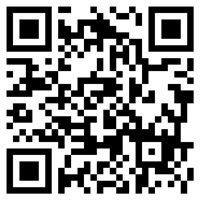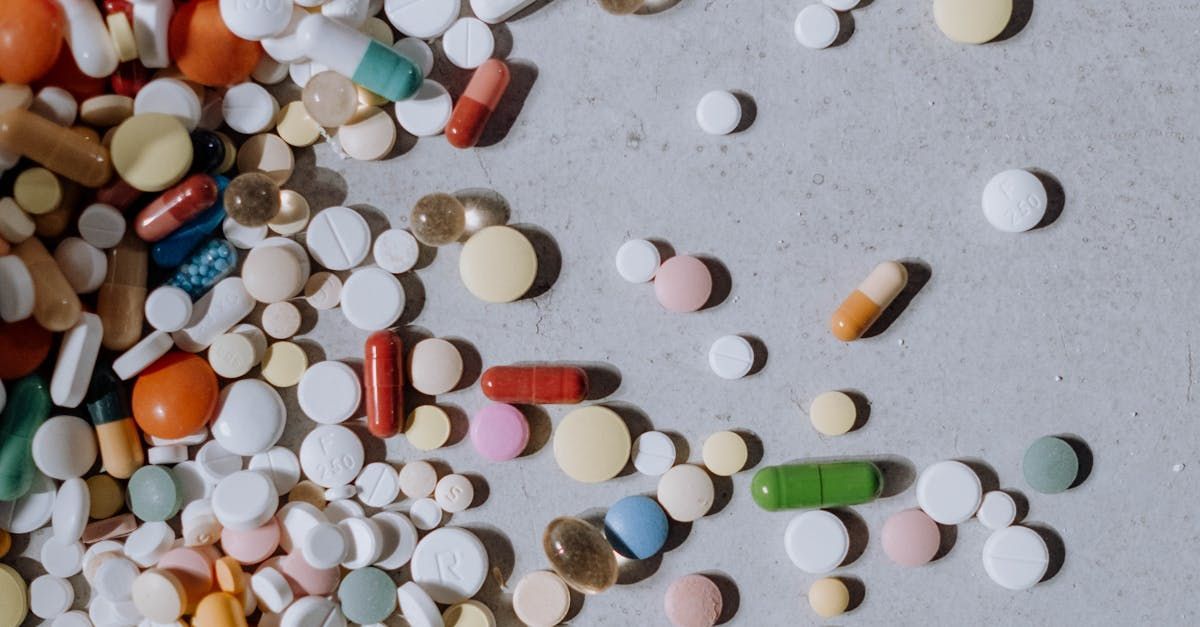425 OLD NEWMAN RD. STE 402 FRISCO, TX 75036
(469) 460-8809
TMS Therapy for Adolescents: It's Finally Approved by the FDA
In today’s world, mental health challenges among teens are at an all-time high. Some adolescents in the Frisco and Little Elm, TX area experience stress, anxiety, and depression. When conventional treatments such as talk therapy and medication aren’t enough, there’s hope in innovative treatments like Transcranial Magnetic Stimulation (TMS) Therapy, which has now been FDA-approved for teens. So, if you’re a parent searching for alternative outpatient treatments, this might be the solution you’re looking for! TMS therapy is particularly effective and safe for adolescent patients, and involving the family in the treatment process is crucial for the best outcome.
What is Transcranial Magnetic Stimulation (TMS) Therapy?
TMS, or Transcranial Magnetic Stimulation, is a non-invasive treatment that uses magnetic fields to stimulate nerve cells in the brain. It’s primarily used to target regions of the brain that are underactive in individuals suffering from depression. The best part? It doesn’t involve surgery, anesthesia, or medication, making it a promising option for children and adolescents who may not respond well to antidepressants, with minimal side effects associated with the treatment.
How Does TMS Work?
TMS applies mild magnetic pulses to the scalp using a magnetic coil. These pulses activate certain brain regions associated with mood regulation, which can lessen symptoms, restore normal brain function, and enhance general well-being for teenagers struggling with depression. TMS can help with varying levels of depression severity and holds potential as a biomarker for psychiatric illnesses.
FDA approval for teens means that more adolescents can now benefit from this advanced treatment option. This is especially significant for those in the Frisco and Little Elm areas where mental health services, such as those provided by Bukhari Psychiatric Services, can help local families.

TMS Therapy for Major Depressive Disorder (MDD)
TMS therapy has emerged as a promising treatment for Major Depressive Disorder (MDD) in adolescents. This innovative approach uses magnetic pulses to stimulate the brain’s dorsolateral prefrontal cortex, a region crucial for mood regulation. By targeting this area, TMS can significantly reduce depressive symptoms and improve the overall quality of life for young individuals battling MDD.
Each TMS session typically lasts around 30-40 minutes, during which the patient remains fully awake and alert. The treatment is generally well-tolerated, with the most common side effects being mild scalp pain and headaches, which usually resolve quickly. For adolescents who have not found relief through traditional methods, TMS offers a non-invasive, drug-free alternative that can make a substantial difference in their mental health journey.
Treatment-Resistant Depression in Adolescents
Treatment-resistant depression poses a significant challenge for adolescents, often leading to severe consequences such as increased risk of suicidal behavior and substance abuse. For those who have not responded to conventional treatments, TMS therapy offers a beacon of hope. This advanced treatment has been shown to effectively reduce depressive symptoms and enhance the quality of life for adolescents with treatment-resistant depression.
TMS therapy is well-tolerated by most patients. The most common side effects are mild, such as scalp pain and headaches, which typically subside quickly. By providing a new avenue for treatment, TMS therapy can help adolescents regain control over their lives and mental health.
Why Is TMS Therapy a Game-Changer for Teens
Teens face unique pressures—academic stress, social media influence, and the turbulence of adolescence can all contribute to rising rates of mental health issues. TMS can be effective for a range of psychiatric disorders in adolescents. The World Health Organization (WHO) estimates that 10–20% of children and adolescents experience mental health conditions, such as depression, anxiety, and behavioral disorders, that are not diagnosed and treated in a timely manner. One of the most prevalent problems is depression, and not everyone responds well to conventional treatment methods like talk therapy or medication.
Benefits of TMS Therapy for Adolescent Depression
Teenagers who suffer from treatment-resistant mental health issues like depression might benefit significantly from transcranial magnetic stimulation (TMS) therapy. Here are a few of the main advantages:
- Non-invasive and drug-free: Unlike antidepressants, TMS doesn’t come with the risk of side effects like weight gain, sleep problems, or emotional numbness, making it ideal for teenagers.
- High success rate: Studies show that TMS can be effective for teens who haven’t responded well to medications or psychotherapy.
- Quick recovery: Each session typically lasts around 30-40 minutes, and there’s no downtime. Teens can return to school or their usual activities right after treatment.
- Long-lasting relief: Many patients experience long-term improvement in their depression symptoms after completing an entire course of TMS therapy.
- Intermittent theta burst stimulation: This novel approach to TMS significantly reduces treatment time while maintaining efficacy. It has FDA approval and offers a unique delivery pattern, providing potential benefits for patients seeking efficient treatment options.
Is TMS FDA Approved for Teens?
In April of 2024, the FDA cleared the use of TMS for patients aged 15-22 for the treatment of major depression. The growing body of research and clinical experience supports the potential of TMS therapy as a valuable treatment option for adolescents. As more evidence accumulates, we anticipate that further validation of using TMS for teen depression will prove to be safe and effective.
Yes! TMS is safe and FDA-approved for teens but it's always best to check with your mental health provider and insurance carrier to see if you would be covered for TMS treatment. Clinical trials have shown that TMS therapy is well-tolerated among younger patients with major depression, with minimal side effects.
That said, consulting with mental health professionals is essential to ensure that TMS is the right fit for your teen. At Bukhari Psychiatric Services, we offer personalized assessments to determine if TMS is the best option for your child.
TMS Therapy vs. Traditional Treatments for Treatment Resistant Depression
Antidepressants (which can actually take weeks to show improvements and have unintended side effects) are often prescribed to children and adolescents with depression diagnoses. Another important technique is therapy. However, some teenagers find it difficult to open up or participate in talk therapy.
The unique feature of TMS treatment is that it affects brain activity directly without the need for medication or lengthy psychotherapy sessions, and it has minimal side effects. It is, therefore a good substitute for teenagers who:
- Haven’t responded to medication
- Struggle with severe side effects from antidepressants
- Are you looking for a non-invasive, quick-acting treatment option?
Our expert team will guide you through every step of the process, ensuring that treatment is customized to your teen’s needs.
Combining TMS Therapy with Other Treatments
Combining TMS therapy with other treatments can enhance the management of depressive symptoms in adolescents. Research has shown that integrating TMS with medications like selective serotonin reuptake inhibitors (SSRIs) or psychotherapy, such as cognitive-behavioral therapy (CBT), can lead to better treatment outcomes and higher remission rates.
For instance, a study published in the Journal of Clinical Psychopharmacology found that adolescents with treatment-resistant depression experienced improved outcomes when TMS was combined with SSRIs. Additionally, pairing TMS with CBT can equip adolescents with valuable coping skills and strategies to manage their depressive symptoms more effectively. This holistic approach ensures a comprehensive treatment plan tailored to the unique needs of each adolescent.
What to Expect During a TMS Session
Before starting TMS, your teen will undergo an evaluation to determine the right placement of the magnetic coil and the intensity of the magnetic pulses. The treatment plan can be tailored based on the depression severity of the patient. Each session will last around 30 minutes, and teens can undergo TMS five times a week for 4-6 weeks depending on the treatment plan.
The teen will sit comfortably in a chair while the machine delivers magnetic pulses during the session. Most patients experience only mild sensations, often described as a light tapping on the scalp. There’s no sedation or anesthesia; your teen will remain fully awake and alert. They are fully awake, aware, and can even chat with the doctor or technician during treatment.
Prevalence of Depression in Youth
Depression is a significant mental health concern among youth, with approximately 1 in 5 adolescents experiencing a depressive episode by the age of 18. According to the National Institute of Mental Health (NIMH), major depressive disorder affects about 3.2 million adolescents in the United States each year. This condition can severely impact an adolescent’s quality of life, affecting their school performance, relationships, and overall functioning.
Early detection and treatment of depression are crucial to preventing long-term consequences and improving outcomes. TMS therapy offers a promising treatment option for adolescents, providing a non-invasive, drug-free alternative that can significantly alleviate depressive symptoms. As research continues to support its efficacy and safety, TMS therapy stands out as a valuable tool in the fight against adolescent depression.
TMS Therapy near Frisco & Little Elm, TX
When previous therapies have failed, teenagers and families might find hope with TMS therapy, which is a breakthrough in the treatment of depression. Bukhari Psych Services is available to assist you if you believe TMS could be the best option for your teen and you live in Frisco or Little Elm, Texas. Every step of the way, our kind and knowledgeable team will evaluate your child's requirements and offer individualized care.
Ready to learn more about TMS as a possible treatment? Schedule a consultation with us right now in order to begin improving your teen's mental health.
FAQs About TMS Therapy for Teens
Q: How quickly will my teen see results with TMS therapy?
A: Many teens begin to notice improvements within 2-4 weeks, though full results typically appear after the complete course of treatment.
Q: Is TMS covered by insurance?
A: Most insurance companies do cover TMS therapy, especially for patients who have not responded to traditional treatments. It’s best to check with your insurance provider and our staff can help guide you through the process.
Q: Can my teen undergo TMS therapy while still on antidepressants?
A: Yes, many teens continue with their current medications while receiving TMS therapy. However, it’s important to discuss this with your healthcare provider to ensure the best course of action.
Local to Frisco Texas? Our team offers expert help with supporting teen depression. If you or someone close to you requires assistance with managing depression. Give us a call or complete our online contact form today!
Cited Sources:
- Kessler, Ronald C et al. “Lifetime prevalence and age-of-onset distributions of mental disorders in the World Health Organization's World Mental Health Survey Initiative.” World psychiatry : official journal of the World Psychiatric Association (WPA) vol. 6,3 (2007): 168-76.
- Sigrist, Christine et al. “Transcranial magnetic stimulation in the treatment of adolescent depression: a systematic review and meta-analysis of aggregated and individual-patient data from uncontrolled studies.” European child & adolescent psychiatry vol. 31,10 (2022): 1501-1525. doi:10.1007/s00787-022-02021-7
- Narang, Puneet et al. “Is Transcranial Magnetic Stimulation Appropriate For Treating Adolescents with Depression?.” Innovations in clinical neuroscience vol. 16,9-10 (2019): 33-35.
Share Article

OUR RELATED ARTICLES
Click here to leave us a review or scan the QR Code shown:

CONTACT
425 OLD NEWMAN RD. STE 402 FRISCO, TX 75036
- Mon - Fri
- -
- Sat - Sun
- Closed
(817) 898-7402
info@bukharipsychiatricservices.com
MAIN LINKS
Click here to leave us a review or scan the QR Code below:

Click here to leave us a review or scan the QR Code above:
CONTACT
425 OLD NEWMAN RD. STE 402 FRISCO, TX 75036
(469) 460-8809
- Mon - Fri
- -
- Sat - Sun
- Closed
(817) 898-7402
MAIN SERVICES
Copyright Bukhari Psychiatric Services. All right reserved.







